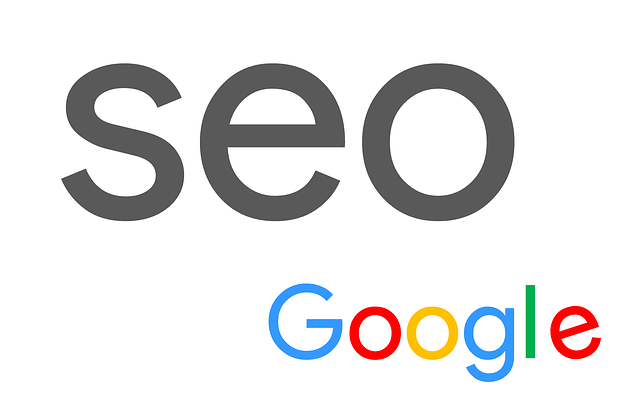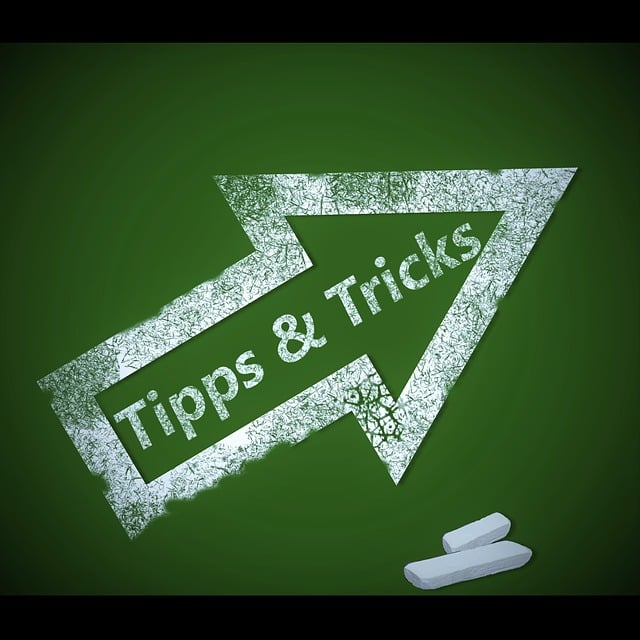Search Engine Optimization (SEO) is a strategic process to boost website visibility and ranking in search results. It involves understanding search engines, optimizing content with relevant keywords, and enhancing technical aspects. Effective SEO practices include continuous research, adapting to algorithm changes, and providing valuable content.
Key SEO Tips for Ranking Higher:
– Keyword Research: Understand user search queries and optimize content, meta tags, and titles accordingly.
– Content Optimization & Structure: Create high-quality, relevant content, use headings, meta descriptions, and internal links for better indexing.
– Off-Page SEO: Build reputable backlinks from esteemed sources to enhance site authority.
– Mobile Optimization: Optimize for speed, responsiveness, and navigation on mobile devices to improve rankings in mobile search results.
– Site Speed & Accessibility: Optimize elements like image size, code, caching, and use CDNs to reduce load times, enhancing user experience.
– Local SEO: Optimize website content with geographic keywords and claim/optimize Google Business Profile listings for local visibility.
– Competitor Analysis: Analyze competitors' strategies to learn and refine your approach while offering unique value.
Regularly update content, monitor keyword rankings, and stay informed about industry trends to maintain effective SEO strategies and achieve higher search engine rankings.
Looking to boost your website’s rankings? This comprehensive guide provides essential SEO Tips for Ranking Higher. From understanding the basics of search engine optimization to delving into complex technical SEO, we cover every angle. Learn the art of keyword research and on-page optimization, explore mobile-friendly design and local SEO strategies. Uncover powerful techniques like building backlinks and analyzing competitors. Stay ahead with continuous optimization—your journey to the top starts here!
Understanding SEO: The Basics of Search Engine Optimization

Search Engine Optimization, or SEO, is a strategic process aimed at enhancing a website’s visibility and ranking in search engine results pages (SERPs). It involves understanding how search engines crawl, index, and rank websites, and then optimizing content, technical aspects, and external links to improve a site’s position. By implementing effective SEO practices, businesses can attract more organic traffic and reach their target audience more efficiently.
At its core, SEO revolves around providing value to users through relevant, high-quality content. This includes optimizing titles, meta descriptions, headings, and body text with strategic keywords that align with user search queries. Additionally, building a robust backlink profile from reputable sources can significantly boost rankings. Following SEO tips for ranking higher involves continuous research, staying updated with algorithm changes, and adapting strategies to meet the evolving needs of both users and search engines.
Keyword Research: Unlocking the Power of Relevant Words

Keyword research is a fundamental step in any successful SEO strategy, serving as the key to unlocking your website’s full potential. By delving into the world of relevant words and phrases, you can effectively navigate the complex digital landscape and capture the attention of your target audience. This process involves identifying the specific terms and queries that users type into search engines when seeking information related to your niche.
Using SEO tips focused on keyword research allows you to tailor your content to meet these exact demands. By incorporating the right keywords naturally throughout your website’s content, meta tags, and titles, you enhance its visibility and relevance in search engine results. This strategic approach ensures that when potential customers search for solutions related to your business, they find your website at the top of the rankings, thus driving more traffic and increasing your online presence.
On-Page SEO: Optimizing Your Website's Content and Structure

Optimizing your website’s content and structure is a crucial aspect of On-Page SEO, one of the most effective SEO tips for ranking higher. This involves ensuring that each page has relevant, high-quality content tailored to your target audience’s search queries. It’s not just about using keywords; it’s about creating valuable, unique content that provides real value and answers user questions. Structure is also key—using headings (H1, H2, etc.), meta descriptions, and alt tags helps both users and search engines navigate and understand your site’s content.
Additionally, incorporating relevant internal links within your pages can significantly enhance On-Page SEO. This allows search engine crawlers to better index your website and understands the relationships between different pages. When done right, these SEO tips for ranking higher not only attract more organic traffic but also boost user engagement, which are both vital signals that search engines consider when determining a site’s relevance and authority.
Off-Page SEO: Building Quality Backlinks for Authority

Off-Page SEO is a powerful strategy that focuses on activities outside your website to improve rankings. One of the key aspects is building high-quality backlinks, which act as votes of confidence from other websites. When reputable sources link to yours, search engines interpret it as an endorsement, boosting your site’s authority and reliability in their eyes. This signal of trust can significantly impact your search engine rankings, making it a crucial SEO tip for achieving higher positions.
Focusing on acquiring backlinks from diverse and relevant sources is essential. This includes guest blogging on industry-related websites, creating shareable content that naturally attracts links, or reaching out to influencers and other authorities in your field to collaborate. Remember, the quality of these backlinks matters more than quantity; each should ideally come from a unique and reputable source, adding value and credibility to your online presence.
Mobile Optimization: Ensuring a Seamless User Experience

In today’s digital era, mobile optimization is an indispensable SEO tip for ranking higher. With a vast majority of internet users accessing websites through their smartphones and tablets, ensuring your site offers a seamless user experience on all devices is crucial. This involves optimizing your website’s loading speed, enhancing its responsiveness to different screen sizes, and simplifying navigation to encourage longer user sessions and lower bounce rates.
A well-optimized mobile site not only improves user satisfaction but also signals to search engines like Google that your content is valuable and accessible, thereby boosting your rankings in mobile search results. Implement these SEO tips for ranking higher by focusing on mobile-friendly design, compressing media assets, using a fast content delivery network (CDN), and ensuring your website is easily navigable and readable on small screens.
Technical SEO: Improving Site Speed and Accessibility

Improving site speed is one of the most effective Technical SEO strategies to enhance your search rankings. Today’s users expect websites to load almost instantly, and Google takes notice. Optimizing images, minifying code, leveraging browser caching, and utilizing content delivery networks (CDNs) are some technical adjustments that can significantly reduce page loading times. These changes not only improve the user experience but also send positive signals to search engines, indicating that your website is valuable and reliable.
Web accessibility is another Technical SEO aspect that should not be overlooked. Making your site accessible ensures it can be used by a broader audience, including individuals with disabilities. Implementing semantic HTML, adding alternative text for images, and ensuring keyboard navigation are essential steps. These practices not only help search engines understand your content better but also comply with accessibility guidelines, such as WCAG (Web Content Accessibility Guidelines). By addressing these technical SEO aspects, you’ll be taking significant steps towards ranking higher in search results.
Local SEO: Targeting Geographic Searches Effectively

Local SEO is a powerful strategy for businesses aiming to boost their online visibility and attract nearby customers. When optimizing your website for search engines, targeting geographic searches should be a top priority. This involves understanding that many users search specifically for local products or services using terms like “restaurant near me” or “plumbers in [city name].” By incorporating these keywords naturally into your content and meta tags, you can signal to search algorithms that your business is located in specific areas, increasing the chances of appearing in local search results.
Implementing effective Local SEO tips for ranking higher includes claiming and optimizing your Google Business Profile (formerly Google My Business) listing. This ensures your business information is accurate and consistent across the web. Additionally, encouraging satisfied customers to leave reviews can significantly impact your local search rankings. The more positive reviews you have, the more trustworthy and relevant your business appears to both search engines and potential clients.
Analyzing Competitors: Learning from Their Strategies

Analyzing competitors is a valuable step in your SEO journey, offering insights into strategies that have proven successful in the past. By studying their online presence and performance, you can uncover opportunities to gain an edge in search engine rankings. Look for keywords they rank highly for and understand how they’ve optimized their content. This isn’t about copying their tactics but rather learning from them to refine your own approach, ensuring your website provides a better user experience.
Effective SEO tips for ranking higher involve adopting competitive strategies while adding unique value. Identify gaps in their content and fill them with fresh, high-quality material that caters to your target audience’s needs. This strategic analysis allows you to create a more robust online presence, ultimately outperforming competitors and capturing a larger share of the search engine results page (SERP) real estate.
Continuous Optimization: Staying Ahead in the Rank Race

In the dynamic landscape of search engine optimization (SEO), continuous optimization is key to maintaining and boosting rankings. As algorithms evolve, staying ahead in the rank race requires a proactive approach. Regularly updating content with fresh, relevant information isn’t just an SEO tip; it’s essential for keeping your website at the top of search results. Incorporating new keywords, refining meta tags, and analyzing user behavior through analytics tools are all part of this continuous process.
SEO experts understand that what works today might not guarantee success tomorrow. Algorithms change, user preferences shift, and competitors adapt. Therefore, SEO strategies must be flexible and responsive. Regularly checking your website’s performance against those of your competitors can provide valuable insights. By staying informed about industry trends and algorithm updates, you can make data-driven adjustments to your SEO strategy, ensuring that your site continues to rank higher for relevant searches.
